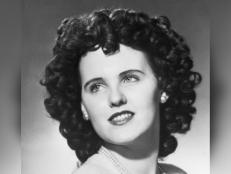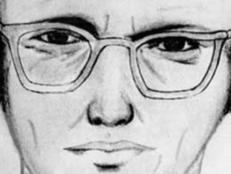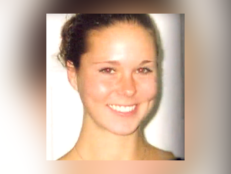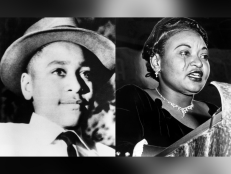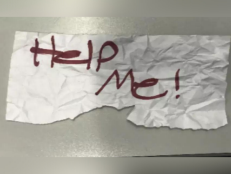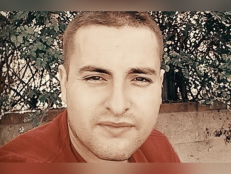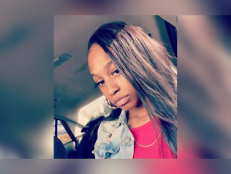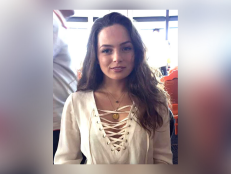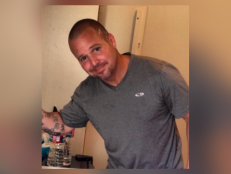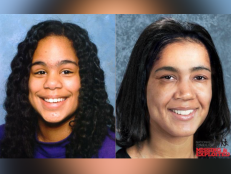When Heiress Patty Hearst Was Kidnapped By Terrorists — & Then Joined Them
Patty Hearst has said publicly that when she was in captivity, her kidnappers abused and brainwashed her in an effort to turn her into a high-profile face of the SLA.

FBI
Patty Hearst (right) during bank robbery
BERKELEY, CA — At 9 P.M., on February 4, 1974, heiress Patricia (Patty) Campbell Hearst was kidnapped, starting what the FBI calls “one of the strangest cases in FBI history.”
Hearst herself wasn’t well-known to the public, but everyone knew the name of her grandfather, newspaper magnate William Randolph Hearst, who left a vast fortune to his heirs. In 2016, the Hearst family was worth $28 billion, according to Forbes.
The “strangest case” began when there was a knock at the door of the apartment Hearst, an art history major at the University of California at Berkeley, shared with fiancée Steve Weed, who she’d met when he tutored her in high school.

FBI
Patty Hearst during the Hibernia Bank robbery
Within moments of the knock, a group of armed men and women forced their way inside the apartment and assaulted and tied up Weed and a neighbor who had heard the commotion and tried to help.
The group then grabbed the teenaged Hearst, blindfolded her, and forced her out of the apartment and into the trunk of a car, in a hail of gunshots.
Pleas for Hearst’s safe return were met with silence until three days after the kidnapping when a Berkeley radio station received a letter from the self-proclaimed kidnappers, the U.S. leftist group Symbionese Liberation Army (SLA), claiming that Hearst was a “prisoner of war.”
Hearst’s kidnapping was part of the SLA’s plot to incite what the FBI called a “guerrilla war” against the U.S. government and the “capitalist state.”
More demands from the group insisted the Hearst family give away $70 of food to every needy person between Santa Rosa to Los Angeles. The Hearst’s complied, donating about $2 million in food.
The kidnappers then demanded $4 million more in ransom. The Hearst family said they couldn’t immediately meet that demand, but would arrange to pay the amount if the heiress was released unharmed.

FBI
Patty Hearst has said publicly that when she was in captivity, her kidnappers abused and brainwashed her in an effort to turn her into a high-profile face of the SLA — and that she was given the choice of joining the SLA or being killed.
On April 3, an audiotape was released of Hearst saying she had joined the SLA.
Just two weeks later, Hearst was seen on a surveillance video holding an assault weapon during a bank robbery, demanding bystanders follow her directions and providing cover as she worked in concert with the other SLA members.
The FBI said the hunt for Hearst was “one of the most massive, agent-intensive searches in history.” The SLA’s intimidation techniques against possible witnesses and informants, array of organized safe houses, and constant movement made the search fruitless until May 16 when two SLA members tried to steal an ammunition belt from a Los Angeles store — with Hearst's assistance, firing shots to cover them.
The three fled in a van, which they later abandoned. A parking ticket enabled police to find the SLA safe house.
The next day, the police surrounded the SLA safe house. A shootout ensued, and the house burst into flames. Six SLA members, including leader Donald DeFreeze, died.
The FBI chased Hearst and the SLA around the country, finally capturing her on September 18, 1975, in a San Francisco apartment. She gave her occupation to authorities as “urban guerrilla.”

FBI
Patty Hearst’s mug shot
Attorney F. Lee Bailey, who later was on O.J. Simpson’s defense team, represented Hearst during her San Francisco “trial of the century.” She was charged with felonies including bank robbery. Hearst was found guilty and sentenced to seven years in prison.
After Hearst had served just two years, President Jimmy Carter commuted her jail sentence. President Bill Clinton later granted her a full pardon, on January 20, 2001.
By 2002, all members of the SLA were captured.
Hearst married her former bodyguard Bernard Shaw soon after her release. They had two children and remained married until his 2013 death.
Since 1990, Hearst has appeared in several movies and TV shows. Her acting career is mostly associated with the films of “Pope of Trash” John Waters, specifically Cry-Baby, Serial Mom, Pecker, Cecil B. Demented, and A Dirty Shame. She is reportedly also active in East Coast society and charitable efforts.
For more on this case, stream The Crimes That Changed Us: "Patty Hearst" on discovery+.
